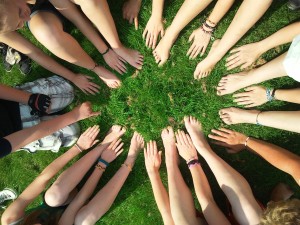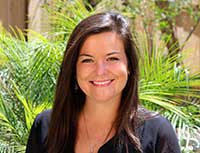- Calls to this hotline are currently being directed to Within Health, Fay or Eating Disorder Solutions
- Representatives are standing by 24/7 to help answer your questions
- All calls are confidential and HIPAA compliant
- There is no obligation or cost to call
- Eating Disorder Hope does not receive any commissions or fees dependent upon which provider you select
- Additional treatment providers are located on our directory or samhsa.gov
Maintaining Eating Disorder Recovery through the Holidays While Experiencing Grief and Loss
Contributed By: Christina Pappafotis, M.A., PCCI, of Montecatini
 As a person progresses through life they develop and learn to rely on various coping skills to help them navigate. Most often these skills are solidified when an individual experiences a difficult or traumatic event.
As a person progresses through life they develop and learn to rely on various coping skills to help them navigate. Most often these skills are solidified when an individual experiences a difficult or traumatic event.
Unfortunately, due to the unexpected nature of life we are not taught what the appropriate ways to alleviate unexpected high levels of stress, sadness, and anger are; therefore, eating disorders are frequently developed and used as maladaptive coping skills to deal with unwanted and uncomfortable emotions.
Loss of Loved One
Specifically challenging can be the loss of a loved one and managing the grief and loss process that inevitably follows. To a person who is in recovery for an eating disorder, the idea of coping with the loss of a loved one without using behaviors is hard enough, but to also be entering holiday season may seem impossible.
In order to better understand how to maintain recovery of an eating disorder while experiencing grief and loss throughout the holiday season, we have to explore what eating disorder recovery is, the grief and loss process, and how these concepts impact one another.
 Eating disorder recovery has many definitions, but the most applicable definition comes from the SAMHSA which is “a process of change through which individuals improve their health and wellness, live a self-directed life, and strive to reach their full potential [1].” This is an ongoing and fluid process that involves learning basic tools of functioning.
Eating disorder recovery has many definitions, but the most applicable definition comes from the SAMHSA which is “a process of change through which individuals improve their health and wellness, live a self-directed life, and strive to reach their full potential [1].” This is an ongoing and fluid process that involves learning basic tools of functioning.
These tools may include skills from Cognitive-behavioral therapy, Dialectical-behavioral therapy, and Acceptance and commitment therapy, but the common thread is addressing that which keeps the individual in a self-destructive pattern. Typically this is the avoidance of unwanted emotions.
According to Brené Brown, Ph.D and author, “We cannot selectively numb emotions, when we numb the painful emotions, we also numb the positive emotions [2].” This cycle of numbing emotions is one that keeps the individual in the eating disorder pattern and this can often be triggered by the grieving process.
It is important to remain cognizant that everyone grieves in different ways. It is not just the typical stages of grief we are taught through the Kübler-Ross Model [3] that emphasize denial, anger, bargaining, depression, and eventual acceptance.
Grieving Models
Other models of grieving have emerged which explore the relationship between the survivor and deceased or attachment, exploring feelings around the death itself, and ultimately the sadness around the loss [4].
 In the end, there is no right or wrong way to grieve, but to the person in eating disorder recovery we must highlight the importance of staying authentic to our emotions and the stage in which we are within that process. Brené Brown, Ph.D, again states that “authenticity is a collection of choices that we have to make every day.
In the end, there is no right or wrong way to grieve, but to the person in eating disorder recovery we must highlight the importance of staying authentic to our emotions and the stage in which we are within that process. Brené Brown, Ph.D, again states that “authenticity is a collection of choices that we have to make every day.
It’s about the choice to show up and be real. The choice to be honest. The choice to let our true selves be seen [2].” Having a better understanding of eating disorder recovery and the grief and loss process separately allows for the ability to appreciate the impact these concepts have on each other, especially as we move into the holiday season.
The holiday season can be challenging for anyone. The amount of stress with preparation, interacting with family members, financial preparation, and the list could be endless, so to add in maintaining recovery of an eating disorder and experiencing the grief and loss of a loved one can be daunting.
Remain Steadfast
In order to remain steadfast in recovery it is important to highlight the common thread between the two concepts, which is remaining authentic to one self and emotions. Although the holidays are a time for cheer, if a person in recovery is experiencing sadness do not forget to allow a space to feel it.
 If they are experiencing urges to slip back into eating disorder behaviors then it is vital to re-engage basic tools that helped at the beginning of recovery. Whether that is CBT thought records, meal planning, reaching out to peers, DBT emotion regulation skills, or reaching back into the tool box for that relapse prevention plan.
If they are experiencing urges to slip back into eating disorder behaviors then it is vital to re-engage basic tools that helped at the beginning of recovery. Whether that is CBT thought records, meal planning, reaching out to peers, DBT emotion regulation skills, or reaching back into the tool box for that relapse prevention plan.
It is important to review the commitments to recovery because this is the time to utilize that plan, when the eating disorder voice is loud and the outside world is chaotic. And if a plan does not exist then this could be a time to create one.
Finally, maintaining recovery of the eating disorder while simultaneously experiencing grief and loss throughout the holiday season is not about white knuckling it, but about allowing oneself the space to have an authentic experience with ones emotions and recognizing this can be successful without relying on unhealthy coping skills to manage.
Community Discussion – Share your thoughts here!
Have you or your loved experienced grief during the holidays while in recovery from disordered eating? What advice do you have to share?
References:
- SAMHSA is the Substance Abuse and Mental Health Administration and their definition can be found on their website www.samhsa.gov
- The gifts of imperfection: let of who you think you’re supposed to be and embrace who you are
By: Brown, C. Brene.
Hazelden
2010 - The model is credited to Elisabeth Kübler-Ross, a swiss psychiatrist, who wrote a book titled On Death and Dying that was inspired by her work with terminally ill patients.
- Psychotherapist Patrick O’Malley, published an article in the New York Times titled Getting Grief Right, outlining the grieving process as chapter’s a person experiences rather than steps to get through.
 About the author: Christina received her BA from James Madison University, Virginia, in Psychology, where she gained practicum experience at her school’s Student Counseling Center and within the community working with individuals with varying degrees of mental health issues, substance use issues, and eating disorders. Following graduation Christina moved to California to pursue her Masters of Arts degree from the University of San Diego’s Clinical Mental Health Counseling program.
About the author: Christina received her BA from James Madison University, Virginia, in Psychology, where she gained practicum experience at her school’s Student Counseling Center and within the community working with individuals with varying degrees of mental health issues, substance use issues, and eating disorders. Following graduation Christina moved to California to pursue her Masters of Arts degree from the University of San Diego’s Clinical Mental Health Counseling program.
She graduated with an emphasis in Substance Abuse and Addiction and a background in Eating Disorders. Currently, she is working toward becoming a Licensed Professional Clinical Counselor, LPCC, with plans to continue working in the co-occurring mental health field. In her free time, Christina enjoys exploring the west coast, traveling, and spending time with her loved ones including her beloved dog. Christina believes a sense of humor can take you far in life, along with living a balanced lifestyle that nourishes the mind, body, and soul.
The opinions and views of our guest contributors are shared to provide a broad perspective of eating disorders. These are not necessarily the views of Eating Disorder Hope, but an effort to offer discussion of various issues by different concerned individuals.
We at Eating Disorder Hope understand that eating disorders result from a combination of environmental and genetic factors. If you or a loved one are suffering from an eating disorder, please know that there is hope for you, and seek immediate professional help.
Last Updated & Reviewed By: Jacquelyn Ekern, MS, LPC on November 10, 2015
Published on EatingDisorderHope.com

